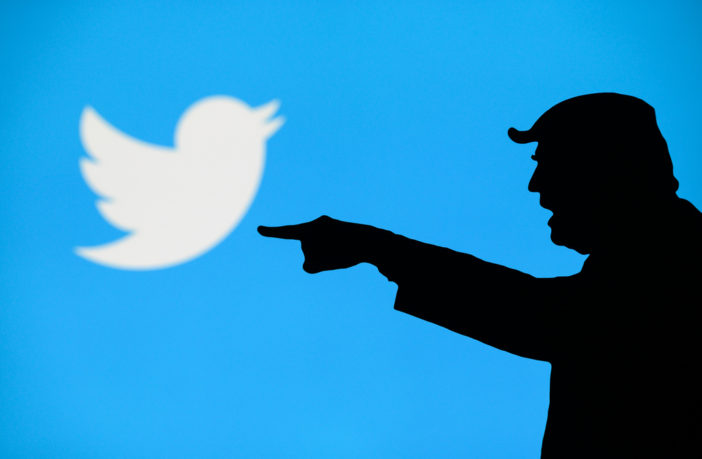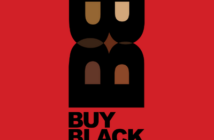(By kovop58_Shutterstock)
By Tali Arbel
AP Technology Writer
Twitter banned President Donald Trump’s account Jan. 8, citing “the risk of further incitement of violence.”
The social platform has been under growing pressure to take further action against Trump following the Jan. 6 deadly insurrection at the U.S. Capitol. Twitter initially suspended Trump’s account for 12 hours after he posted a video that repeated false claims about election fraud and praised the rioters who stormed the Capitol.
Twitter’s move deprives Trump of a potent tool he has used to communicate directly with the American people for more than a decade. He has used Twitter to announce policy changes, challenge opponents, insult enemies, praise his allies and himself — and to spread misinformation, flirt with inciting violence and denounce targets of his ire in capital letters.
Twitter has long given Trump and other world leaders broad exemptions from its rules against personal attacks, hate speech and other behaviors. But in a detailed explanation posted on its blog Jan. 8, the company said recent Trump tweets amounted to glorification of violence when read in the context of the Capitol riot and plans circulating online for future armed protests around the inauguration of President-elect Joe Biden.
In those tweets, Trump stated that he will not be attending the inauguration and referred to his supporters as “American Patriots,” saying they will have “a GIANT VOICE long into the future.” Twitter said these statements “are likely to inspire others to replicate the violent acts that took place on January 6, 2021, and that there are multiple indicators that they are being received and understood as encouragement to do so.”
The company said “plans for future armed protests have already begun proliferating on and off-Twitter, including a proposed secondary attack on the US Capitol and state capitol buildings on January 17, 2021. “
Twitter said its policy enables world leaders to speak to the public, but that these accounts “are not above our rules entirely” and can’t use Twitter to incite violence. Trump had roughly 89 million followers.
Trump’s persona on Twitter has long functioned as a mix of policy announcements — often out of the blue; complaints about the media; disparagement of women, minorities and his perceived enemies; and praise for his supporters, replete with exclamation marks, all-caps, and one-word declarations such as “Sad!”
He has fired numerous officials on Twitter and his posts, like his speeches at rallies, are a torrent of misinformation.
Social media companies have been under intensified pressure to crack down on hate speech since a violent mob egged on by Trump stormed the Capitol. Dozens of QAnon social media accounts were hyping up Trump’s Jan. 6 rally in the heart of Washington, expressing hope that it could lead to the overturn of the election results.
On Jan. 8, the advocacy coalition Stop Hate for Profit launched a campaign to pressure the major platforms, including YouTube owner Google, to kick Trump off their services for good. The organization, which includes the Anti-Defamation League, the NAACP, the National Hispanic Media Coalition, Free Press and Color of Change, said it will call for an advertiser boycott if the platforms don’t take action by Jan. 20, the date of President-elect Joe Biden’s inauguration.
Last summer, the coalition organized a monthlong ad boycott of Facebook that ultimately involved hundreds of companies to push for more assertive action on hate speech at the social network.
Some federal lawmakers and celebrities have likewise called on the tech companies to extend suspensions or ban Trump altogether. Frank Pallone, a powerful Democratic congressman from New Jersey, tweeted that “It’s time for (Twitter CEO Jack Dorsey) and Mark Zuckerberg to remove Trump from their platforms.”
“President Trump’s platform on social media has been used to incite violence and insurrection,” said Sen. Joe Manchin, a centrist Democrat from West Virginia, in an emailed statement. “Facebook and Instagram made the correct decision in banning President Trump for at least the remainder of his term and I will continue to urge Twitter and other platforms to do the same.”
Former First Lady Michelle Obama tweeted Jan. 7 that Silicon Valley companies should stop enabling Trump’s “monstrous behavior” and called for them to permanently ban Trump and enact policies to prevent their technology from being used by national leaders to “fuel insurrection.”
One former Twitter official has called on the platform to suspend Trump’s account in a way that would block anyone from following him and keep past tweets invisible for an indefinite period. It’s a change in position for Adam Sharp, Twitter’s former head of news, government, and elections, who tweeted Jan. 7 that he had “long been a defender of Twitter’s permissiveness” regarding Trump’s violations of its rules. Sharp left the company in 2016.
Other tech companies also acted against Trump’s accounts, citing threats of violence. Snapchat locked Trump’s account “indefinitely.” Twitch, the live-streaming site owned by Amazon and used by Trump’s campaign to stream speeches, disabled Trump’s account until he leaves office. E-commerce company Shopify shut down two online Trump memorabilia stores.
YouTube announced more general changes that will penalize accounts spreading misinformation about voter fraud in the 2020 election, with repeat offenders facing permanent removal. Reddit on Jan. 8 banned a forum for Trump supporters, called “donaldtrump.”
Some criticized tech companies for blocking or barring Trump. Mexico President Andrés Manuel López Obrador, who is seen as friendly to Trump, on Jan. 7 said, “I don’t like anybody being censored or taking away from the right to post a message on Twitter or Face(book). I don’t agree with that, I don’t accept that.” He said the issue should be decided by government and not private companies.



